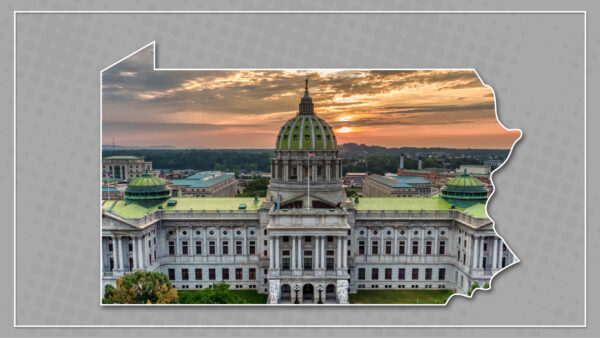
HARRISBURG – Lawmakers shared serious concerns regarding the unrealistic and dangerous revenue and spending projections in Gov. Josh Shapiro’s proposed budget plan during the first day of a three-week series of public hearings with the Senate Appropriations Committee today.
The governor’s $51.5 billion spending plan for Fiscal Year 2025-26 features a 7.5% spending increase over the current year. Senate Republicans have previously projected that Shapiro’s spending plan would create a funding shortfall of more than $27 billion over the next five years.
Department of Revenue
Revenue Secretary Pat Browne confirmed the state is only expected to bring in approximately $47.5 billion in revenue under existing law. In order to balance the budget next year, Shapiro would need to eliminate the state’s entire existing fund balance of nearly $3 billion and transfer $1.6 billion from the state’s emergency savings, also known as the Rainy Day Fund.
In addition, the governor’s budget assumes revenues from existing sources will be more than $5 billion higher over the next five years than projections made by the non-partisan Independent Fiscal Office (IFO).
Video Highlights
Sec. Browne said the Department of Revenue would not spend down its $14 million in reserves for recurring expenses, despite the fact that Gov. Shapiro’s budget takes that approach to the state’s emergency reserves.
Sec. Browne did not share an opinion on the governor’s proposed elimination of the state’s emergency savings in the Rainy Day Fund.
The governor’s lofty revenue projections under existing law were highlighted. The Administration is projecting revenues $5.1 billion higher than the state’s non-partisan Independent Fiscal Office.
Doubts were raised about the ability to pass and create a regulatory system for recreational cannabis within a year, as imagined in the governor’s budget plan. Shapiro’s budget relies on cannabis revenues that are twice as high as their own projections last year.
Sec. Browne was questioned about his support for legislation to provide greater transparency to Neighborhood Improvement Zones. Browne was compelled to testify on that issue in October.
Concerns were raised about the cost of the governor’s plan to repurpose unused tax credits. The increased costs of these tax credits were not included in Gov. Shapiro’s 2025-26 budget or the five-year planning period.
Shapiro’s budget assumed taxation and regulation of skill games would bring in five times more revenue than the Administration’s own previous year’s projections. Senators expressed doubt that a taxation and regulatory framework could be in place soon enough to book that revenue, as well as concerns regarding enforcement and the impact on VFWs and other service organizations.
Only 16% of the Department of Revenue’s workforce is in the office full-time.
Pennsylvania Higher Education Assistance Agency (PHEAA) and Pennsylvania State System of Higher Education (PASSHE)
The governor’s spending plan includes $661.1 million for PASSHE, an increase of $40.3 million, or 6.5%.
$417 million would be available for PHEAA grants to students, a 0.2% increase. PHEAA also shared that the application period for the new Grow PA Scholarship Grant Program is expected to open soon, providing $25 million in funding to support students earning degrees and completing job training programs in high-demand industries.
Video Highlights
Questions were raised about how PASSHE is working to right-size the system in the face of steep declines in enrollment.
The interim chancellor provided additional information on compliance with Trump Administration Executive Orders and guidance on avoiding discrimination and protecting women’s sports.
Gov. Shapiro’s budget does not include increases for PASSHE and PHEAA beyond next year.
PASSHE was urged to continue helping students with financial literacy.
PHEAA and PASSHE’s efforts to minimize student debt were explored.
An update was provided on the sale of unused or underutilized PASSHE properties and the savings realized by those sales.
PASSHE provided an update on how they are working to recruit students from out of state.
PASSHE provided an update on how students would be able to complete their studies after the closure of Commonwealth University’s Clearfield campus.
The importance of the Keystone Loan program was explored.
You can find recaps and video from every Senate budget hearing at PASenateGOP.com.
CONTACT: Jason Thompson
